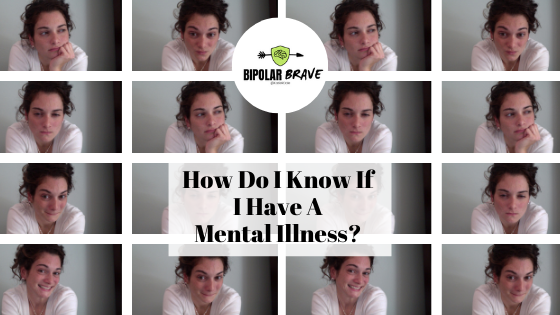I’ve been asked before how someone might know if they have a mental illness or not. I am not a psychiatrist and cannot give you official medical advice, but the practical advice I would give you is the following:
1. Examine yourself
Ask yourself if you’re observing symptoms of bipolar disorder, schizophrenia, or any kind of classifiable diagnosis on the Diagnostic Statistical Manual of Mental Illness, version 5. If so, which ones? Write out when and how they are triggered, what you did before the episode or symptom occurred, and how you responded to any triggers. Describe facts and feelings. Keep track of the frequency of changes in mood and actions. Sometimes Borderline Personality Disorder appears like bipolar disorder on the surface, but that is an entirely different disorder.
2. Ask others around you
Ask trusted supports in your life, like family and friends, to see if they have observed any symptoms, and if so, which ones? Document their responses too.
Some other questions to give you an idea of what to ask of your potential symptoms:
a. Have your recent behaviors been out of the ordinary?
b. Are you between 15 and 30 years old? (Most mood disorders – bipolar and schizophrenia – develop then)
c. Have you experienced a big life change recently?
d. Have you experienced the symptoms lasting longer than 2 weeks?
If you answered yes to all 4 of those questions, those can be indications that you may be inclined to have a mood disorder like bipolar disorder or schizophrenia or schizo-affective disorder.
3. Discuss these observations with your general physician
If you and they have concerns, ask for a referral or simply just go see a psychiatrist or psychologist. Mental health doctors (psychiatrists and psychologists) are the mental health professionals that can diagnose and help with medication (psychiatrists prescribe) if you do in fact have a mental illness.
As a believer in Christ, trusting God has created you and knows you better than you know yourself. Therefore, take a step of faith and see what a mental health professional has to say. At best, you’ll find out you don’t have a diagnosis. At worst, you’ll find you have one, and be able to be prescribed medication to help with tempering it, and therapy to help treat it.
4. Turn over the rocks in your life
In examining your symptoms, be honest with your feelings. Don’t lie to yourself – be completely honest with all of your feelings and thoughts and bring them before God. Ask Him to fix whatever is broken inside you. Then, ask Him for His peace. Additionally, find a counselor to discuss your thinking with, to examine your thought processes in order to replace cognitive dissonances and fallacies with truthful beliefs.
Don’t forget, you are never alone.
Don’t worry about what may, or may not be.
Just do what you can, that’s the best you can do. And let God do the rest.
Stay brave, bold, and real,
Katie

What do you think?